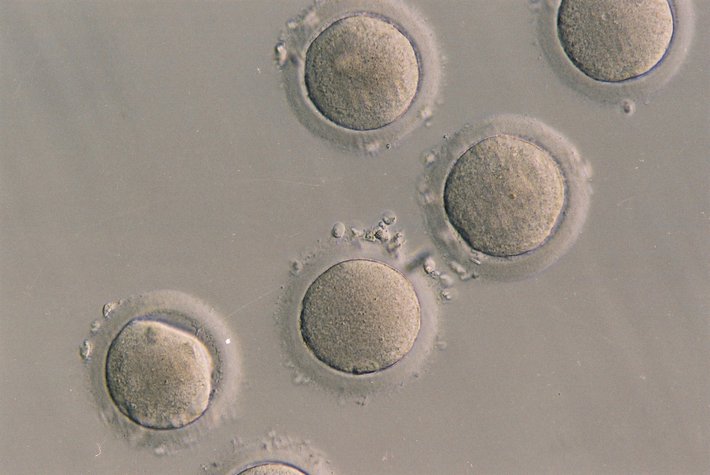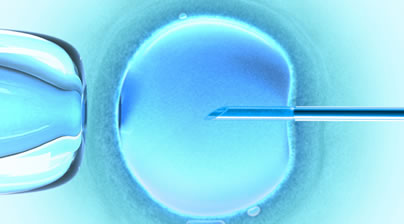Sitting in the waiting room of an infertility clinic, strangers find themselves connected by a shared thread of anxiety, frustration and grief. Though the specific circumstances may be different, everyone is there for the same reason. Many people may think that getting pregnant is an easy, fun and joyful experience, but looking around that waiting room, you will see many other people who know that isn’t so.
For couples struggling with infertility, there are a variety of different options available: intrauterine insemination, drugs that help with ovulation, in vitro fertilization (IVF), intracytoplasmic sperm injection… the list goes on.
But what if you’ve already tried it all, with no baby yet to show for all those injections, invasive procedures and time spent trying? Using donor eggs for IVF is a fertility treatment that gives hope to couples who refuse to give up their dream of having a child.

The biological clock is counting down
Seeing all the news articles about celebrities who become mothers later in life may give the wrong impression about how difficult it can be to conceive after age 35. The truth is, while an individual’s fertility may vary, women generally begin to have a harder time becoming pregnant in their mid-30s, and those chances steadily decline. By age 40, there’s only a 5% chance with each ovulation cycle that a woman will get pregnant on her own.
The reason for that is simply that a woman is born with all the eggs she will ever have, and older eggs are less likely to lead to a normal, healthy pregnancy. Other factors that can impact a woman’s fertility include experiencing early menopause or taking certain medications. If a woman cannot conceive due to problems with her own eggs, then she may be a good candidate for donor eggs.
Choosing an egg donor
Egg banks allow couples to sort through various profiles of donors to select the eggs they will use for treatment. All donors are prescreened for medical, psychological and genetic issues, giving prospective parents peace of mind and allowing them to focus on criteria that matter most to them. While appearance and ethnic background are important factors to some, recent research suggests that traits such as intelligence and athletic ability are becoming more important criteria.
If you’re just starting to look at donor eggs, parents who have already been through the process suggest keeping an open mind. You may not find a donor with the exact set of qualities you were looking for, but you may find the perfect donor in someone you didn’t expect. Your child will not simply be a replica of the donor. He or she will be an exciting mix of your family life, dad’s DNA, mom’s superb nurturing skills… and perhaps even an unexpected tall gene from the donor’s uncle.

The donor egg IVF cycle
Once the couple has selected their donor, the next steps depend on whether they are pursuing a fresh or frozen egg cycle.
Fresh eggs are fertilized immediately upon retrieval from the donor’s ovaries. This means that the recipient and donor must take medications to sync their menstrual cycles, and the donor takes hormones to mature several eggs at once. This route can have uncertainties, such as how many eggs will become available and how long the process will take, especially if unforeseen circumstances come up for either party.
Frozen eggs have already been retrieved, so there are less medications for the recipient to take, and the couple know from the start how many eggs they will receive. Whenever the couple is ready, the eggs are shipped to their fertility clinic to be thawed.
After the eggs arrive, the recipient will begin taking medications to prepare her uterus to accept the embryo. Once she is ready, the clinic fertilizes the donor eggs with the father’s or a donor’s sperm. Three to five days later, once the eggs have cultured and developed into embryos, the doctor selects the strongest candidates for transfer into the mother. A pregnancy test taken a week or two later will indicate if the couple can now pop the cork of some non-alcoholic champagne.
The Centers for Disease Control and Prevention (CDC) depicts that the live birth for donor egg IVF is said to be as 55.9% for fresh embryo transfer and said to be 40.2% for frozen embryo transfer. Well, if you conceive through IVF (In Vitro Fertilization) of any kind, then use pregnancy calculator that estimated due date by IVF method according to date of transfer and embryo age. Apart from the estimated due date, the pregnancy calculator provides you with a pregnancy week by week highlights.
Hope for the future
Infertility can lead its victims through a staggering array of emotions, from self-doubt to anger to grief. Fertility doctors emphatically recommend that couples seek help from a therapist to work through these feelings. However, one silver lining is that modern reproductive technology allows for every patient sitting in the waiting room to have hope that one day, ten tiny fingers will be curled around mom’s or dad’s. And with egg donation, the mother gets the added joy of experiencing pregnancy and bringing those tiny fingers to life.
This is a collaborative post
